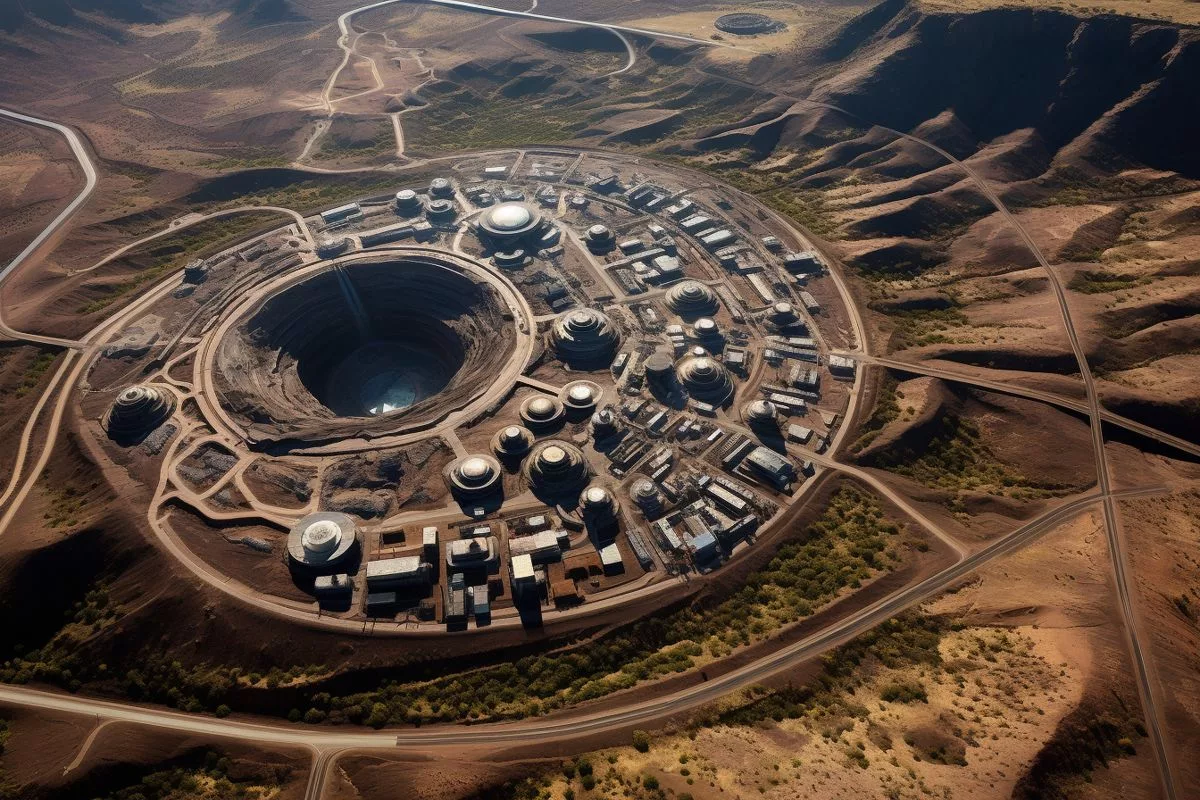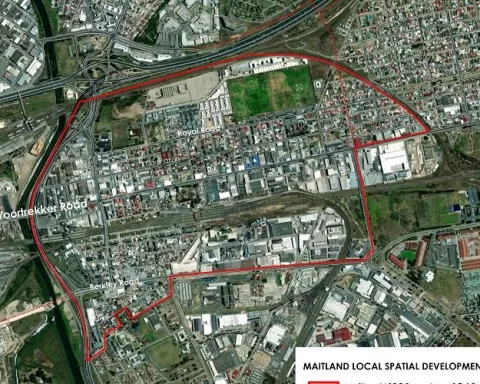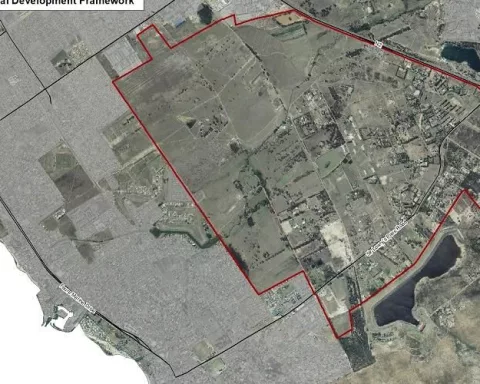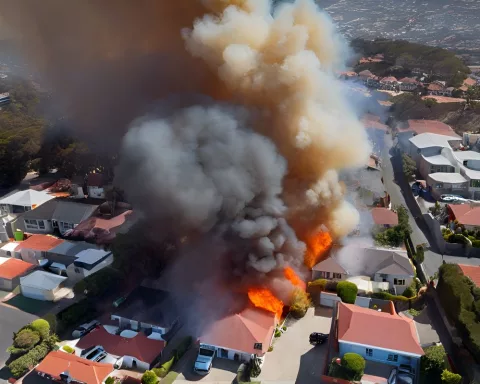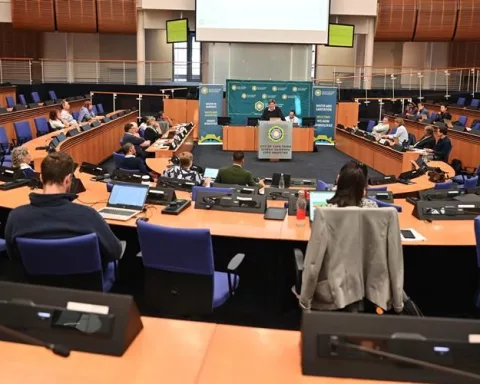The Philippi Opportunity Area is set to undergo a transformation that will make it a sustainable and resilient region. The Local Spatial Development Framework aims to reshape the area into a mixed-use transport hub, merging green spaces with industrial elements to create urban areas that accommodate high-density residential development, retail, and recreational spaces. The plan also fosters inclusivity and diversity by developing affordable housing options tailored for different income groups and lifestyles and preserving historic tree avenues. The LSDF aims to reinforce the implementation of this spatial vision, steering its transformation and shaping its future.
Philippi Opportunity Area (POA) is set to undergo a considerable transformation as per an approved spatial development strategy, the Local Spatial Development Framework (LSDF). The LSDF’s vision for the POA includes parts of Philippi East, Philippi Industrial Area, Heinz Park, Nyanga, Crossroads, and a small portion of Gugulethu. This ambitious plan is designed to act as a catalyst for the growth and transformation of the metro-south-east into a mixed-use, transit-oriented development (TOD) node. The LSDF also considers environmental sustainability as a key factor in the transformation plan.
A Strategic Location for Transformation
Within the metro-south-east, neighboring the Philippi Horticultural Area, Cape Town International Airport, and the main transit routes N2 and R300, lies the jewel of the region – the Philippi Opportunity Area (POA). This area is set to undergo a considerable transformation as per an approved spatial development strategy, the Local Spatial Development Framework (LSDF). The LSDF aims to reshape the area into a mixed-use transport hub. Alderman Eddie Andrews, the City of Cape Town’s Mayco member for spatial planning and environment, highlighted the site’s strategic location as being pivotal to its progress towards becoming a sustainable and resilient region.
The LSDF’s vision for the POA includes parts of Philippi East, the Philippi Industrial Area, Heinz Park, Nyanga, Crossroads, and a small portion of Gugulethu. This ambitious plan is designed to act as a catalyst for the growth and transformation of the metro-south-east. The framework proposes a comprehensive, integrated approach, leading the area’s rejuvenation into a mixed-use, transit-oriented development (TOD) node.
A Unique Blend of Green and Industrial
One interesting aspect of this transformation plan is the merger of green spaces with industrial elements. This complex combination of varied elements aims to establish urban areas that accommodate high-density residential development, retail, and recreational spaces, all within walkable districts adequately supported by transport facilities and high-quality social amenities.
The LSDF’s plan is ambitious, outlining various improvements and developments. A crucial feature is the enhancement of accessibility by revamping and upgrading major local roads, thereby fortifying the POA’s connection with the airport, the PHA, and industrial areas. The framework also proposes the repurposing of vacant or underused state-owned land to serve local needs, thereby maximizing the use of resources.
Fostering Diversity and Inclusivity
In a drive to foster inclusivity and diversity, the LSDF plans to develop a variety of mixed-use affordable housing options tailored for different income groups and lifestyles. This approach will ensure the benefits of development are equitably distributed, contributing to a more balanced society.
Economic prosperity is a fundamental part of this development, with the LSDF aiming to strengthen emerging economic activities. Key initiatives include promoting agri-processing, expanding the Fresh Produce Market, food production, waste recycling, and processing. The framework also provides for the support of informal trading, with strategically located markets and trading spaces designed to foster a vibrant local economy.
Balancing Modern Development with Heritage Preservation
The planned transformation includes the creation of safe, pedestrian-friendly public spaces. It also endeavors to respect the area’s unique character and heritage, including preserving historic tree avenues. It is this delicate balance between modern development and the preservation of heritage that promises to lend a unique character to the POA.
The LSDF also considers environmental sustainability as a key factor. One of its main proposals is the creation of a green network comprised of parks, multi-functional stormwater and sports facilities, and food garden spaces. This not only promotes a healthier, greener environment but also enhances the aesthetic value of the area.
Implementing the Spatial Vision
The LSDF for the POA outlines interventions, infrastructure projects, and investment plans to reinforce the implementation of this spatial vision. Moving forward, the framework will serve as a blueprint for land use, development, and investments in the POA, steering its transformation and shaping its future. This initiative is set to redefine the landscape and lifestyle of the region, promising a sustainable and resilient future for its residents.
What is the Philippi Opportunity Area (POA)?
POA is an area located in the metro-south-east of Cape Town, neighboring the Philippi Horticultural Area, Cape Town International Airport, and main transit routes N2 and R300. It is set to undergo a transformation that will make it a sustainable and resilient region.
What is the Local Spatial Development Framework (LSDF)?
The LSDF is an approved spatial development strategy that aims to reshape the POA into a mixed-use transport hub, merging green spaces with industrial elements to create urban areas that accommodate high-density residential development, retail, and recreational spaces. The LSDF fosters inclusivity and diversity by developing affordable housing options tailored for different income groups and lifestyles and preserving historic tree avenues.
What is the vision for the POA according to the LSDF?
The LSDF’s vision for the POA includes parts of Philippi East, the Philippi Industrial Area, Heinz Park, Nyanga, Crossroads, and a small portion of Gugulethu. This ambitious plan is designed to act as a catalyst for the growth and transformation of the metro-south-east into a mixed-use, transit-oriented development (TOD) node.
What are the key features of the LSDF?
One interesting aspect of this transformation plan is the merger of green spaces with industrial elements. The LSDF also plans to develop a variety of mixed-use affordable housing options tailored for different income groups and lifestyles and strengthen emerging economic activities, promoting agri-processing, expanding the Fresh Produce Market, food production, waste recycling, and processing.
What is the LSDF’s approach to heritage preservation?
The planned transformation includes the creation of safe, pedestrian-friendly public spaces. It also endeavors to respect the area’s unique character and heritage, including preserving historic tree avenues. The LSDF considers environmental sustainability as a key factor, proposing the creation of a green network comprised of parks, multi-functional stormwater and sports facilities, and food garden spaces.
How will the LSDF be implemented?
The LSDF for the POA outlines interventions, infrastructure projects, and investment plans to reinforce the implementation of this spatial vision. Moving forward, the framework will serve as a blueprint for land use, development, and investments in the POA, steering its transformation and shaping its future.

